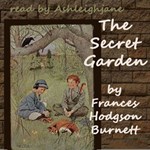
Learn English with the classics

|

English Audiobooks
Learn English listening and reading Audiobooks, or if you know the language, just enjoy our catalog.

English Grammar
Use these English grammar lessons for self study or to consolidate your lessons with your teacher.

Mobile Apps
Download the best mobile apps for learning English, available for Android, iPhone, iPad and MAC.
Recommended Books

Picture of Dorian Gray, The





Wilde, Oscar Dorian Gray, a young man of wealth and stature in late 1800's London, meets Lord Henry Wotton while posing for a portrait by his friend Basil Hallward. Once the painting is complete, Dorian realizes that it will always be young and attractive, while he will be forced to age and wither with the years. Carelessly, he wishes the opposite were true. What happens is a treatise on morals, self-indulgence and how crucial personal responsibility is towards one's self.

War and Peace, Book 02: 1805





Tolstoy, Leo War and Peace is an epic novel by Leo Tolstoy, first published from 1865 to 1869 in Russki Vestnik, which tells the story of Russian society during the Napoleonic Era. It is usually described as one of Tolstoy's two major masterpieces (the other being Anna Karenina) as well as one of the world's greatest novels.
War and Peace offered a new kind of fiction, with a great many characters caught up in a plot that covered nothing less than the grand subjects indicated by the title, combined with the equally large topics of youth, age and marriage. While today it is considered a novel, it broke so many novelistic conventions of its day that many critics of Tolstoy's time did not consider it as such. Tolstoy himself considered Anna Karenina (1878) to be his first attempt at a novel in the European sense.

Anne of Green Gables (version 3)




Montgomery, Lucy Maud The timeless story of the young orphan girl sent by accident to a brother and sister who had wanted a boy, Anne, with her vivid imagination and sensitive spirit, has enchanted readers for generations.

Beyond Good and Evil



Nietzsche, Friedrich First published in 1886 at Nietzsche’s own expense, the book was not initially considered important. In it, Nietzsche denounced what he considered to be the moral vacuity of 19th century thinkers. He attacked philosophers for what he considered to be their lack of critical sense and their blind acceptance of Christian premises in their considerations of morality and values. Beyond Good and Evil is a comprehensive overview of Nietzsche’s mature philosophy.

Notes from the Underground


Dostoyevsky, Fyodor Fyodor Dostoyevsky’s short masterpiece about a ranting, slightly mad civil servant. The stylistic inventiveness, and the insights into the absurdities and weakness of humans seem so fresh and incisive today that if published now (a century and a half later) Notes would be considered an avant-garde post-modernist triumph. In some ways this is a heavy text, laden with conversational philosophizing; but the vividness of the narrator make it a wonderful read, and funny.

Narrative of the Life of Frederick Douglass


Douglass, Frederick Narrative of the Life of Frederick Douglass is a memoir and treatise on abolition written by famous orator and ex-slave, Frederick Douglass. It is generally held to be the most famous of a number of narratives written by former slaves during the same period. In factual detail, the text describes the events of his life and is considered to be one of the most influential pieces of literature to fuel the abolitionist movement of the early 19th Century in the United States.

Siddhartha


Hesse, Hermann Siddhartha is one of the great philosophical novels. Profoundly insightful, it is also a beautifully written story that begins as Siddhartha, son of an Indian Brahman, leaves his family and begins a lifelong journey towards Enlightenment. On the way he faces the entire range of human experience and emotion: he lives with ascetics, meets Gotama the Buddha, learns the art of love from Kamala the courtesan, and is transformed by the simple philosophy of the ferryman Vasudeva whose wisdom comes not from learned teachings but from observing the River. Herman Hesse (1877-1962) was a German-Swiss novelist, poet, and painter. He was awarded the Nobel Prize in Literature in 1946.

Secret Garden, The-3


Burnett, Frances Hodgson When Mary Lennox, who has been brought up in India in a spoiled manner, is orphaned she has to move to Yorkshire, England, to live with her uncle in Misselthwaite Manor. Here she is treated much differently than she was in India - she is able to make friends with children her own age, one of these being her sickly cousin, Colin Craven

Island of Dr. Moreau, The

Wells, H. G. The Island of Doctor Moreau is an 1896 science fiction novel written by H. G. Wells, addressing ideas of society and community, human nature and identity, religion, Darwinism, and eugenics.
When the novel was written in the late 19th century, England's scientific community was engulfed by debates on animal vivisection. Interest groups were even formed to tackle the issue: the British Union for the Abolition of Vivisection was formed two years after the publication of the novel.

This Side of Paradise

Fitzgerald, F. Scott This Side of Paradise is the debut novel of F. Scott Fitzgerald. Published in 1920, and taking its title from a line of the Rupert Brooke poem Tiare Tahiti, the book examines the lives and morality of post-World War I youth. Its protagonist, Amory Blaine, is a wealthy and attractive Princeton University student who dabbles in literature and has a series of romances that eventually lead to his disillusionment. In his later novels, Fitzgerald would further develop the book's theme of love warped by greed and status-seeking.

Aesop's Fables, Volume 12 (Fables 276-284)

Aesop Dating back to the 6th century BC, Aesop's Fables tell universal truths through the use of simple allegories that are easily understood. Though almost nothing is known of Aesop himself, and some scholars question whether he existed at all, these stories stand as timeless classics known in almost every culture in the world. This is volume 12 of 12.

Poems Every Child Should Know

Burt, Mary E. This anthology of poetry, published in 1904, contains such favorites as The Raven, My Shadow, and The Village Blacksmith, as well as many lovely poems that may be unfamiliar. Most of the poems in this collection are short enough for children to memorize.

House on the Borderland, The

Hodgson, William Hope In 1877, two gentlemen, Messrs Tonnison and Berreggnog, head into Ireland to spend a week fishing in the village of Kraighten. While there, they discover in the ruins of a very curious house a diary of the man who had once owned it. Its torn pages seem to hint at an evil beyond anything that existed on this side of the curtains of impossibility. This is a classic novel that worked to slowly bridge the gap between the British fantastic and supernatural authors of the later 19th century and modern horror fiction. Classic American horror writer H. P. Lovecraft lists this and other works by Hodgson among his greatest influences.

Art of Public Speaking, The

Carnagey (Carnegie), Dale The Art of Public Speaking by Dale Carnegie and Joseph B. Esenwein is a manual for people who have to speak in public, and it is still in use today. Whether the occasion in question is sharing travel experiences with friends, a toast for newly-weds, or a public debate, the tips and tricks collected in this book will come handy anywhere.
The book describes how to make effective use of one's voice and gestures, how to gain and convey confidence in front of a large audience, and which methods to use to convert the listeners to one's own cause. Each chapter contains examples and a list of practice exercises. The last 15 sections are real speeches by famous men to function as a study aid.

Beowulf

Unknown Beowulf. [Translated by Francis Barton Gummere].This is a short but beautiful book, and the Gummere translation really captures the feel of the Old English. Beowulf tells the story of a mysterious young warrior who saves the Spear-Danes from the terrible monster Grendel and his venomous mother. Long a mainstay of English Literature 101 courses at universities around the world, it is not only one of the oldest, but one of the most exciting English folktales ever invented.
SPONSORED LINKS

